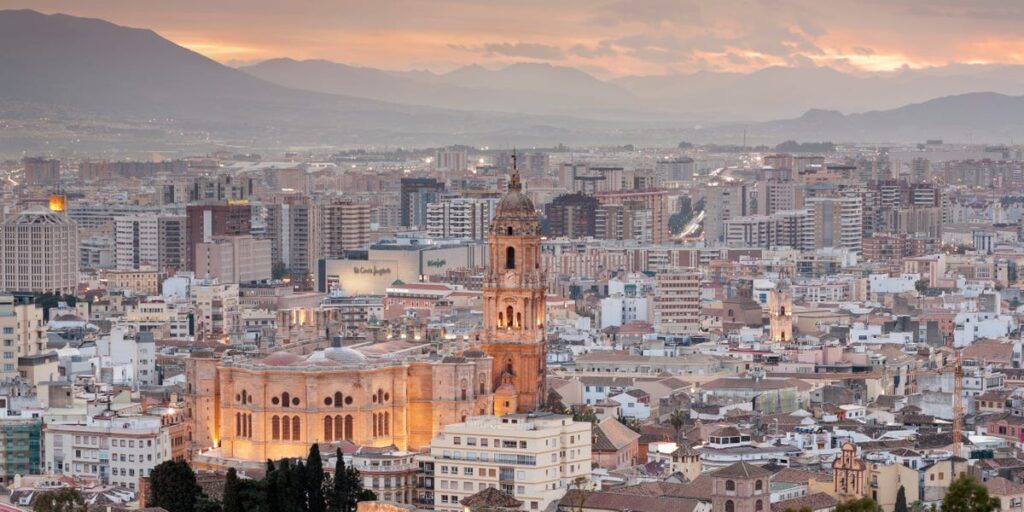This as-told-to essay is based on a conversation with Michele Bennett, a 44-year-old who moved from Phoenix to Málaga, Spain, in 2024. The conversation has been edited for length and clarity.
I’d spent over a decade in sales, nine of those years in the mortgage industry. In the first six years, I worked sometimes 80 hours a week but almost always at least 55. I was so incredibly burned out.
I’d never been to Europe but had always wanted to go. I was especially drawn to Spain because my ancestors were from there.
I also liked its slower pace of life, which didn’t seem all about work. I feel like in the US, people live to work, whereas in Spain, they work to live — people here aren’t responding to emails at 9 p.m., outside their work hours. The idea of a calmer, more relaxed way of life was really appealing.
At the time, I was living in downtown Phoenix, in a part of the city that felt progressive. Still, outside that bubble, it was very conservative, which was concerning to me as a queer woman. I was also uneasy about the strong gun culture in Arizona, and I always felt stuck in fight-or-flight mode. I wanted to live somewhere that felt less stressful and safer.
After more than a year of planning, I quit my job, sold my car, my townhouse, and almost everything else I owned, and headed to Spain.
I passed up Barcelona for Málaga
Before moving, I did as much research as I could, but I was still nervous getting on that plane — I think it would be crazy to make that kind of move without being nervous.
Still, my concerns about moving weren’t as big as my reasons for wanting to leave the United States.
I originally considered living in Barcelona because I wanted to be in a big city by the sea, but my friend who has lived in both Valencia and Seville convinced me that Málaga was more my vibe. I’m glad she did.
Málaga is a midsize city and the birthplace of Pablo Picasso. There’s a really great Picasso Museum here, and the Casa de Picasso, the house where he was born.
The architecture in Málaga is so different from anything we have in the US. I’ll be walking to the grocery store and pass by a giant fortress. Even after a year of living here, it still amazes me.
I live right in the center of Málaga, just around the corner from the Alcazaba, a fortified palace. The neighborhood is beautiful, especially this time of year, though it does get full of tourists, which can be a bit much sometimes.
The locals are so lovely. My Spanish is still poor — I’m learning — but they’ll tell me, “Your Spanish is fine.” It’s a sweet lie.
Finding a place to live can be difficult in Spain
I used Idealista, a real estate website, to find my home. I got really lucky. I messaged probably 30 different listings, and it was hard to get a response.
I got lucky with a two-bedroom apartment that has central AC, a dishwasher, and a huge terrace. It’s about 900 square feet. Sometimes, I’m just sitting on my sofa, looking out to my terrace, and I can see the Santa Iglesia Catedral Basílica de la Encarnación — it’s incredible.
I pay about €1,325 ($1,545), which is pretty affordable. However, I have noticed that in the last year, home prices and rents have gone up, though not as dramatically as in the US over the past couple of years.
I feel some guilt knowing that selling my house for about $525,000 and having a bit in my savings allows me to afford a home that locals can’t. That’s one reason I try to give back. I’ve done a bit of volunteering by taking care of the neighborhood’s colony of stray cats.
Being social comes with its challenges
I’m in Spain on a student visa, which my attorney recommended. After arriving here, I applied for it, was approved, and enrolled in classes. I visited a couple of schools, ultimately choosing one in Málaga.
I’m enrolled for 48 weeks, and after that, I’m going to do another 48 weeks of language study. My goal is lofty — ideally, by next summer, I’ll be almost fluent. That will be helpful because I eventually want to enroll in law school here.
I’ve found it’s hard to make friends with locals because my Spanish is nowhere near fluent. But I am going to a language school where I’ve made a few friends. I’ve also made some by going to meetups and through Facebook groups.
Dating is difficult — but for queer women, it’s always a little bit more difficult. The lesbian community in Málaga is very small. Though Torremolinos, a town maybe 20 minutes from Málaga, is recognized as the gay capital of the Costa del Sol, it’s mainly geared toward men. There’s not a lesbian bar there.
Since moving, my life has changed for the better
I’m so glad I moved here. My life now, compared to before, feels like night and day.
My stress levels were substantial last year. When I was still living in the US, I had really terrible stress-induced eczema all over my hands. But within a month of living in Spain, it was completely gone.
I’m still relying on my savings, and I am exploring some online work for myself. I don’t want to work for a US-based company, so I’ve been posting a lot on social media and also doing some virtual assisting work.
Living so close to the sea and going to the beach means I’m enjoying a much more relaxed way of life. They take siestas here, and while I don’t normally nap in the afternoon, I have been.
I’ve always been a city girl and a fast walker, but here I really have to remind myself to slow down. There’s no rush.
Read the full article here
















